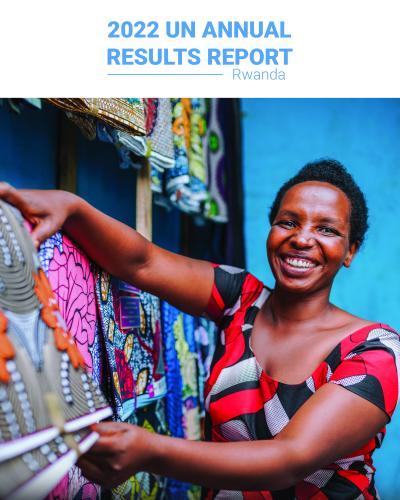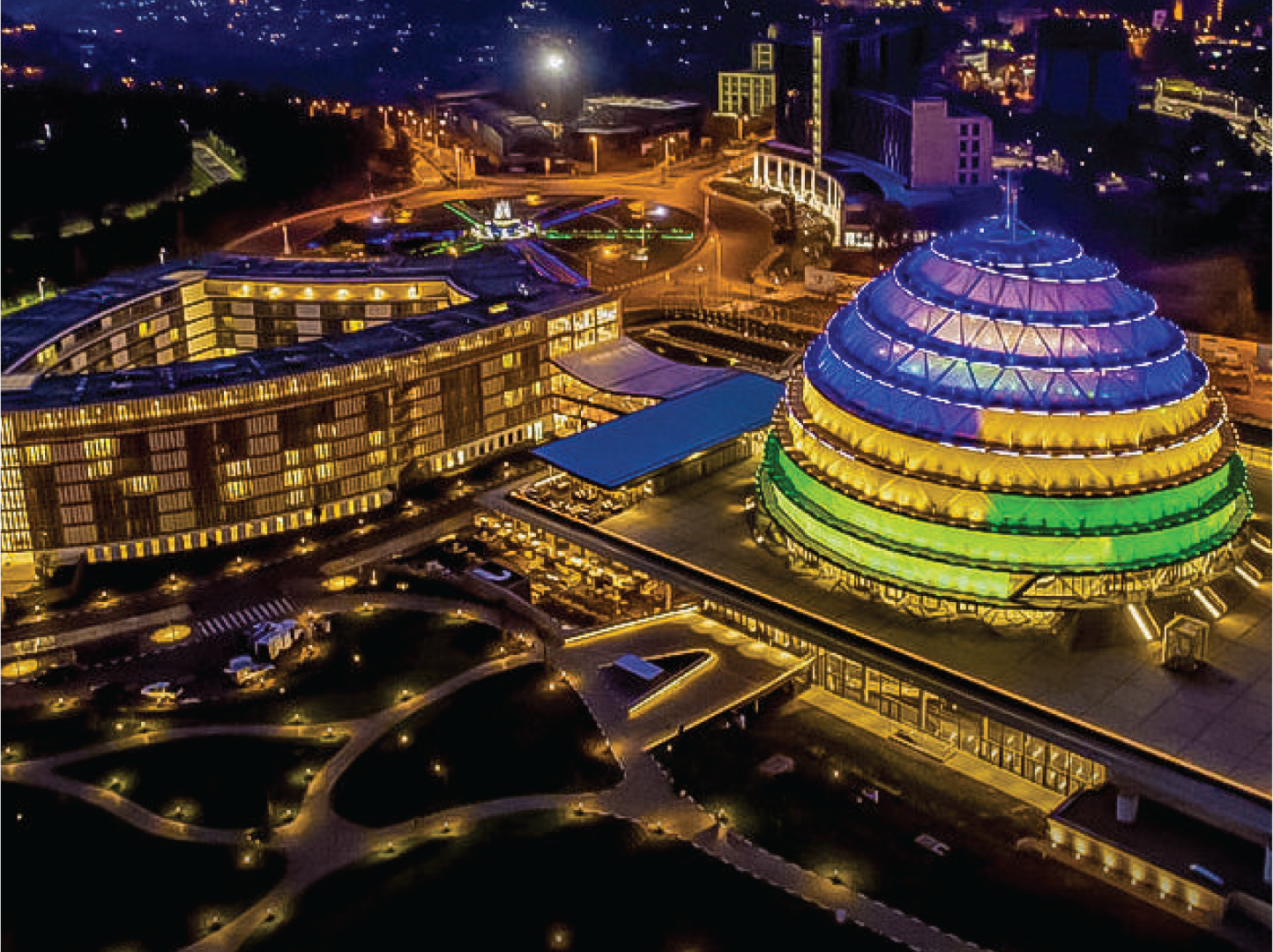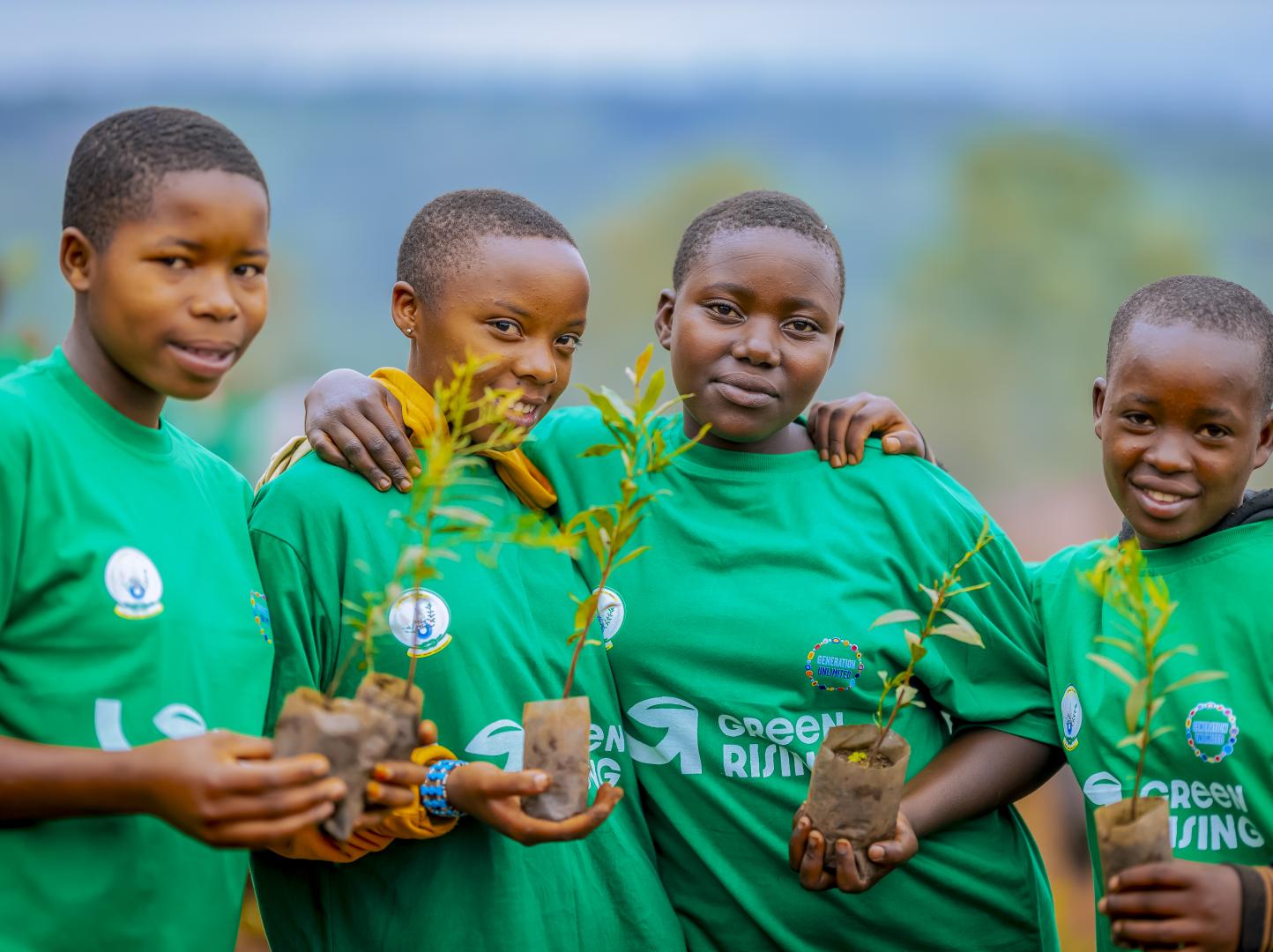UNCT Annual Results Report 2022

We are thrilled to present the Annual Results for 2022 of the implementation of our United Nations Sustainable Development Cooperation Framework (UNSDCF, 2018 - 2024) for Rwanda. This report reflects our collective efforts to support the country's development priorities, which are fully aligned with the National Strategy for Transformation (NST1, 2017-2024) and the Sustainable Development Goals (SDGs). This report brings you amazing stories from various communities showcasing the impact of the UN’s work, working together with Government and different partners, leaving no one behind. More than the stories and numbers published, there is a fundamental transformation happening in people's lives, communities, and institutions for the betterment of livelihoods and strengthening of the institutional capacities.
2022 was a year of extremes for the global economy with the onset of the COVID-19 pandemic and most recently Ukraine crisis and associated cost of living crisis. Edged agricultural commodity markets, energy costs, and food prices remain elevated even after retreating from their record highs hitting the hardest vulnerable countries and the most vulnerable people. These crises have also impacted Rwanda’s economy and its people with overall inflationary pressures remaining high. The economic shocks have demanded for the work of the UN Rwanda team to be more agile, and intentional and to be driven by a human-centred approach that prioritizes improving the quality of life and expands opportunities for everyone, especially those who are most vulnerable and marginalized in a sustainable manner. We have shown remarkable resilience and creativity, adapting to new realities, and finding innovative ways to continue serving people. Our health interventions, for instance, focused not only on containing the spread of the Coronavirus disease and the vaccination drive, but also on ensuring that people had access to essential health services, such as immunization, maternal and child health, sexual and reproductive health, and mental health support. We worked closely with local health workers, community leaders, and civil society organizations to ensure that no one was left behind.
Similarly, our education programs supported the Government's efforts to improve the quality of education and increase access to education for vulnerable groups as well as contributing to the national school feeding programme. In agriculture, we supported smallholder farmers to increase their productivity and access to markets as well as enhance the use of digitisation to boost the sector’s growth. We also reinforced Rwanda's efforts to build resilience to climate change, increase investment in green financing and reduce greenhouse gas emissions.
In peace-building, we continued to support the authorities in promoting social cohesion and national unity as well as strengthened the implementation of the Comprehensive Refugee Response Framework.
We have also facilitated the development of the country’s Integrated National Financing Framework (INFF), which will aim to meet the development needs of the country as well as mobilize the resources required to meet the SDG financing gap through developing innovative approaches. For example, a blended finance facility, social bonds, and a green bank.
Furthermore, our economic growth initiatives focused on supporting small and medium-sized enterprises, women and youth entrepreneurs, cross-border traders, and farmers. We promoted inclusive and sustainable value chains that created jobs, increased income, and improved livelihoods. Through collective action, we have also worked towards creating positive and sustainable impact in nutrition, disability inclusion, and institutional capacity building, thus promoting the well-being and empowerment of individuals and communities while fostering inclusive societies. Lastly, on data and statistics, in partnership with the National Institute of Statistics Rwanda (NISR) and other partners, we have achieved a ground-breaking milestone with the use of digital technology to conduct the 5th Population and Housing Census survey reducing the analysis period from 2 years to 6 months.
Going forward, as we renew our commitment to supporting Rwanda's development priorities, we are mindful of the contextual developments that will shape the next phase of our new UN Sustainable Development Cooperation Framework. These developments include the results of the recent 5th Population and Housing Census 2022, the upcoming Common Country Analysis (CCA) update, the preparation of the 2024 National election, and the unfolding political, social, economic, and security situation in the region. We are committed to working closely with the Government and all our Partners to ensure that our support is aligned with these contextual developments and that we continue to make progress toward the SDGs.
As we reflect on our achievements, opportunities, challenges, and lessons learned, we remain committed to putting people first in everything we do. Our UN collective leadership, the dedication of UN colleagues, and our esteemed Partners have been instrumental in our achievements. We are grateful for the trust and financial and human resources provided by our partners through strategic partnerships and synergies. Most importantly, we acknowledge the invaluable cooperation with the Government -- together, we stand stronger to build a better future. Lastly, we are honoured to walk this path with the people of Rwanda toward a brighter and more equitable future.
Turi Kumwe! Enjoy the read!
Ozonnia Ojielo
UN Resident Coordinator





















